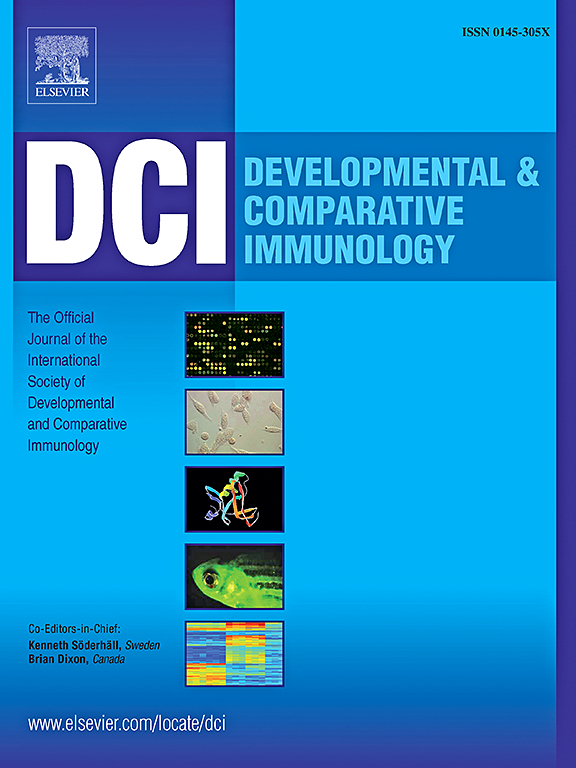水生无脊椎动物血细胞再生的研究进展:机制和意义。
IF 2.4
3区 农林科学
Q1 FISHERIES
引用次数: 0
摘要
造血是负责循环和组织中血细胞生成的过程。它在维持动物体内平衡和抵御感染方面起着至关重要的作用。虽然造血是具有循环系统的动物的共同特征,但涉及造血事件的具体机制在无脊椎动物中差异很大。我们对无脊椎动物这一过程的理解主要基于对作为发育模型的物种的研究,对水生无脊椎动物的研究有限。在这篇综述中,我们总结了目前关于水生无脊椎动物造血谱系的知识,特别是在甲壳类、软体动物和棘皮动物群体中,具有潜在的经济和医学意义。血细胞主要在造血组织中产生,随后被释放到血液循环中,在那里它们经历最后的成熟。我们讨论了用于血细胞分类的各种标记的应用,特别强调造血的分子机制,包括转录调节和体液因子,如细胞因子、生长因子和信号通路。这些见解有助于更全面地了解水生无脊椎动物的造血。本文章由计算机程序翻译,如有差异,请以英文原文为准。
Advances in hemocytes regeneration of aquatic invertebrates: Mechanisms and implications
Hematopoiesis is the process responsible for the generation of blood cells in both the circulation and tissues. It plays a crucial role in maintaining homeostasis and defending against infections in animals. Although hematopoiesis is a common feature among animals with a circulatory system, the specific mechanisms involved in hematopoietic events vary significantly among invertebrates. Our understanding of this process in invertebrates is largely based on studies conducted on species used as developmental models, with limited research having been conducted on aquatic invertebrates. In this review, we summarize current knowledge regarding the hematopoietic lineage in aquatic invertebrates, particularly within the groups of Crustacea, Mollusca, and Echinodermata, which hold potential economic and medical significance. Hemocytes are primarily produced in hematopoietic tissues and subsequently released into the circulation, where they undergo final maturation. We discuss the application of various markers used for hemocyte classification, with a particular emphasis on the molecular mechanisms underlying hematopoiesis, including transcriptional regulation and humoral factors such as cytokines, growth factors, and signaling pathways. These insights contribute to a more comprehensive understanding of hematopoiesis in aquatic invertebrates.
求助全文
通过发布文献求助,成功后即可免费获取论文全文。
去求助
来源期刊
CiteScore
6.20
自引率
6.90%
发文量
206
审稿时长
49 days
期刊介绍:
Developmental and Comparative Immunology (DCI) is an international journal that publishes articles describing original research in all areas of immunology, including comparative aspects of immunity and the evolution and development of the immune system. Manuscripts describing studies of immune systems in both vertebrates and invertebrates are welcome. All levels of immunological investigations are appropriate: organismal, cellular, biochemical and molecular genetics, extending to such fields as aging of the immune system, interaction between the immune and neuroendocrine system and intestinal immunity.

 求助内容:
求助内容: 应助结果提醒方式:
应助结果提醒方式:


